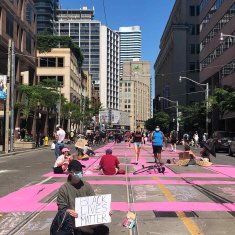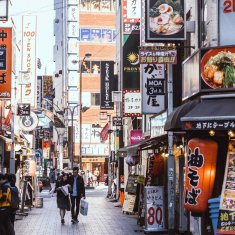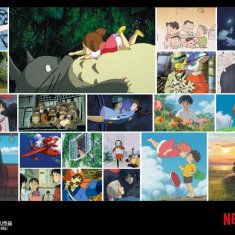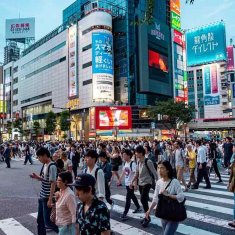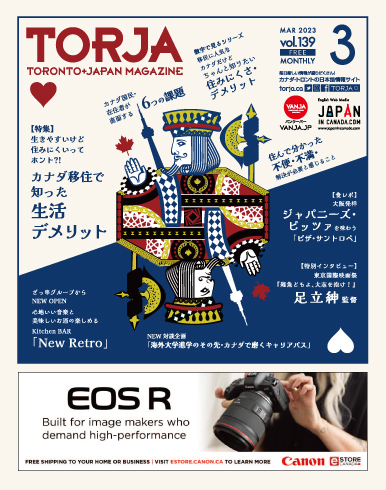NAGOYA – Aichi Gov. Hideaki Omura said that he intends to sue the Culture Ministry over its refusal to subsidize the Aichi Triennale 2019 arts festival in Nagoya, after it became mired in controversy over a statue symbolizing “comfort women” on Sept. 26.
“We will uphold the freedom of expression guaranteed by Article 21 of the Constitution of Japan,” Omura told reporters on Sept. 26. “I cannot accept the unilateral decision to not disburse the subsidy,” Omura added. “I will take this matter to court.”
Earlier in the day, the central government’s withdraw of a subsidy for the Aichi Triennale 2019 International Art Festival has sparked cries of censorship. The cultural agency said that the festival will not receive a state subsidy due to “procedural errors” and that it will not pay a ¥78 million grant as it was “not informed in advance that the exhibit, part of the festival, could trigger an outcry that would jeopardize the event’s smooth operation.”
According to the Aichi prefectural government, the total operating cost of the festival is about 1.2 billion yen ($11 million), with the prefecture set to shoulder around 600 million yen and the city of Nagoya about 200 million yen. The rest was supposed to be funded by the 78 million yen state subsidy, corporate sponsorships and entrance fees.
The agency claimed that the committee had not properly submitted all the necessary information about the event when applying for the subsidy; however, in Omura’s new conference, he showed a document issued by the agency in April granting approval of the subsidy.
“There is no rational reason for the latest decision,” Omura said. “These measures, carried out via abstract reasoning, are equivalent to an infringement on freedom of expression.”
Critics lambaste withdrawal of subsidy as ‘censorship’
Constitutional law scholars, artists and citizens’ groups are blistering in their criticism.
Ken Terawaki, former head of the cultural division at the Agency for Cultural Affairs, said “If culture and arts don’t have freedom, then it will regress. The agency can’t explain that ‘the cause is the exhibition’s content,’” according to The Mainichi Shimbun. “But looking at the way that politicians’ public pronouncements and other things have gone on, the general public will get the impression that the statue of the girl was behind the withholding of subsidies. Activities relating to art and culture will shrink, independently of any context.”
Taro Igarashi, a Tohoku University architectural history professor who served as artistic director for the Aichi Triennale in 2013, said the latest decision could be considered a doubling of bad precedents for artistic events. “Some people interfered with the event by making threats over the phone, which led to the canceling of the exhibit,” Igarashi said to The Asahi Shimbun, referring to the 770 claims including an arson threat . “If the subsidy is also withdrawn, that would be a second layer of bad precedent. I believe a restraining force will emerge when planning for cultural events in the future,” Igarashi said.
The Japan P.E.N. Club, which consists of leading novelists, issued a statement under the name of President Shinobu Yoshioka. The statement said, “The Agency for Cultural Affairs’ decision could be considered an endorsement of the cowardly acts that led to the suspension (of the event) due to threats.” “It goes completely against the role of the administrative branch to be vigilant about securing and fostering the public sphere.”
Akira Koike, a leader of the Japanese Communist Party, said the decision was nothing less than “censorship” prohibited by the Constitution. “If the method of rejecting subsidy payments after the fact becomes widely accepted, event organizers will constantly have to be concerned about how the administration would react,” Koike expressed.





